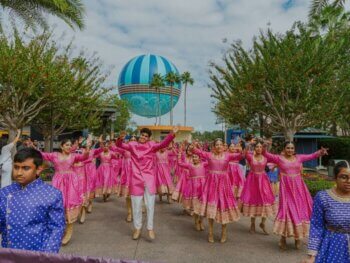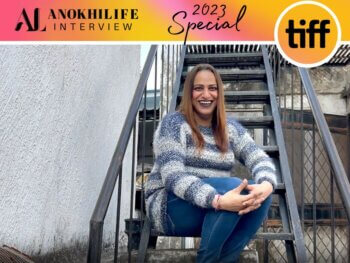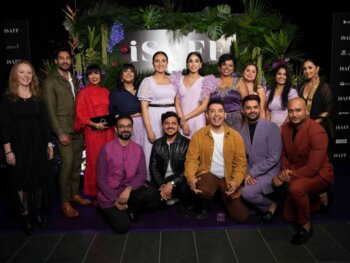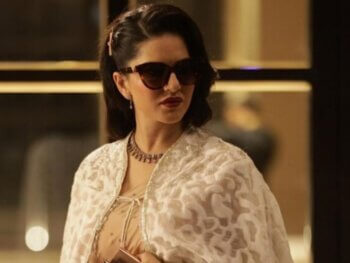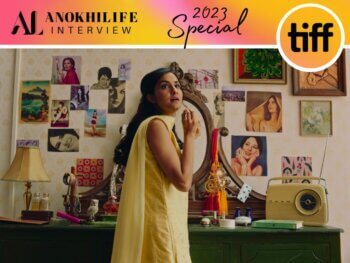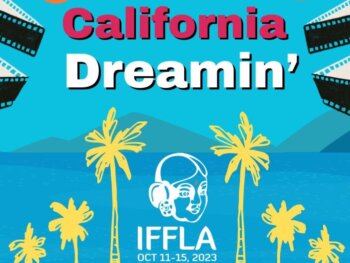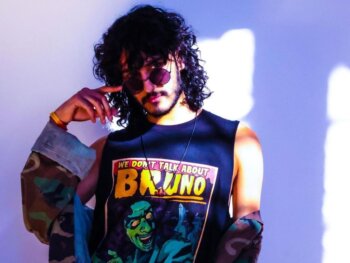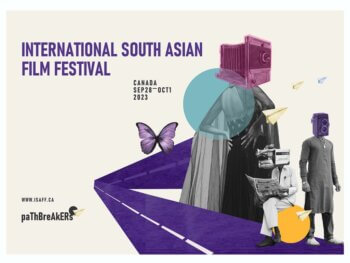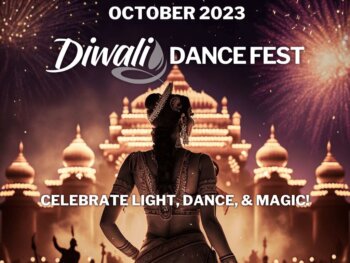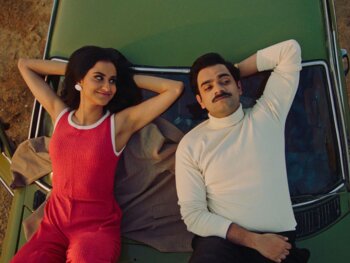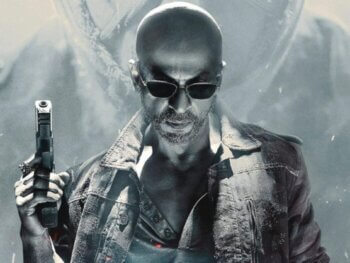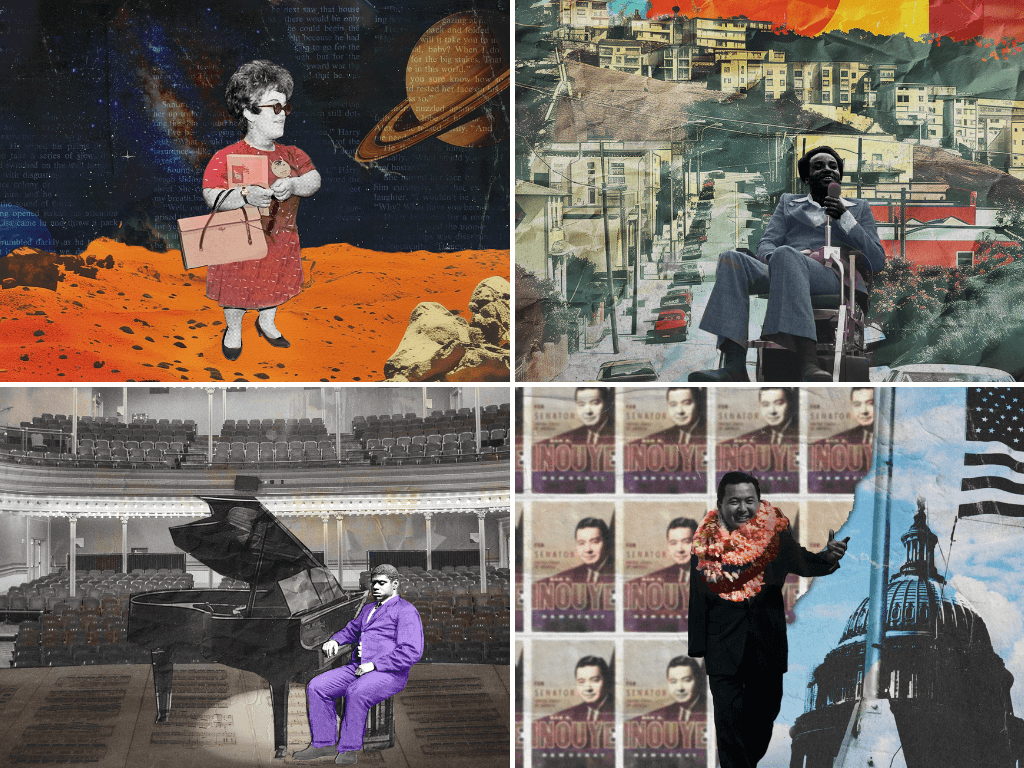
How PBS Series ‘Renegades’ Celebrates American History’s Most Badass Disabled Changemakers
Entertainment Nov 20, 2024
Renegades: A Bold Series Revealing Hidden Histories of Disability Icons
Renegades is a collaborative project from Inspiration Films, LLC and ITVS, produced alongside American Masters Pictures. This impactful series introduces viewers to influential yet lesser-known figures in disability history, exploring their cultural impact and unique contributions to American society. Presented by Lachi, a blind musician and disability advocate, Renegades is brought to life by a team of predominantly D/deaf and disabled filmmakers. It’s designed to elevate the visibility of disability culture and foster meaningful dialogue across communities.
The series is produced under the leadership of executive producer Charlotte Mangin for Inspiration Films, with Day Al-Mohamed as senior producer and Amanda Upson as series producer. Embracing the guiding principle of “Nothing About Us Without Us,” Renegades also functions as a mentorship program, nurturing emerging disabled talent in directing, producing, writing, cinematography, and editing.
Launching in recognition of National Disability Employment Awareness Month (October), Renegades aired from October 1 to October 29 on the American Masters YouTube channel, PBS.org, and the PBS App. Through intimate portrayals and powerful storytelling, this series revealed untold stories of disabled figures who have shaped American history, offering viewers a fresh lens on disability culture and its societal impact.
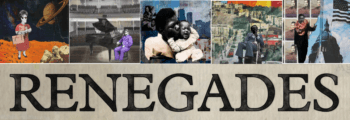
The series features an array of influential figures, including Daniel K. Inouye (1924-2012), a decorated World War II veteran and the highest-ranking Asian American in U.S. political history; Celestine Tate Harrington (1955-1998), a street musician who became an advocate for disabled parents; Brad Lomax (1950-1984), a disability and civil rights leader pivotal in the 504 sit-in of 1977; Thomas Wiggins (1849-1908), a Black pianist and composer who broke barriers as the first Black musician to perform at the White House; and Judy-Lynn Del Rey (1943-1986), a science fiction editor known for publishing groundbreaking works by authors like Arthur C. Clarke, Isaac Asimov, and Philip K. Dick, as well as George Lucas’s Star Wars novelization.
The initial pilot episode 2021 celebrated Kitty O’Neil (1946-2018), a stunt performer and racer who earned the title “the fastest woman in the world” during the 1970s.
Let’s explore my conversation with the renowned writer and director Day Al-Mohamed, co-founder of FWD-Doc, an organization supporting disabled filmmakers. The series is the brainchild of Day Al-Mohamed, whose work as a writer, director, and advocate for inclusive storytelling has earned widespread acclaim.

Mehak Kapoor: What inspired you to create Renegades, and how has your journey shaped your views on disability representation in media?
Day Al-Mohamed: I am so glad you added that second part because that was one of the core parts; looking at how disability is shown in media. Either it’s not there at all or presented through specific tropes and stereotypes. Either this tragedy has happened to your life, or it’s one person overcoming everything, swimming oceans and climbing mountains to succeed. Or it’s this vulnerable person who becomes a victim, this often happens with women in stories, where they need to be protected or saved.
As a blind woman, I often think, That’s not me. I wanted to tell stories that reflect real life, showing people with disabilities as part of a vibrant, dynamic community. We occupy diverse roles, have complex identities, and make significant contributions to society. These stories are not just about survival or victimhood; they highlight the impact and legacy of individuals with disabilities.
That’s where the idea of a historical series came from. It’s about showing that we didn’t just exist now, we’ve always been here and had a place in history. Judy-Lynn del Rey changed the way we look at science fiction. Celestine Tate Harrington won a battle to preserve her family at a time when families with children with disabilities were under immense pressure, which still resonates today. Thomas Wiggins, a Black, blind, enslaved man, created music that laid the roots for jazz, blues, and rock and roll, connecting to modern music.
It’s about putting people with disabilities in their rightful place in history and sharing that with a broader mainstream audience, not as a niche disability history, but as an integral part of world history everyone should know.
MK: Renegades showcases a powerful and diverse lineup of historical figures who broke barriers across politics, music, civil rights, and publishing. How did the team select their particular individuals, and what unique challenges or achievements in their lives do the series explore to deepen our understanding of their impact?
DalM: So we’ve been very blessed to have several historical advisors. We went to academia and pulled in scholars in disability studies and history and a couple who teach English. Their entire lives are dedicated to studying history and disability. We asked them, “Who are folks that you may have heard of?”
Some individuals I encountered in my research and others were found by team members. But then these advisors came in and said, “Here’s some things we know that might help.” That input helped us narrow things down to a few key figures.
From there, we wanted to ensure we represented a variety of disabilities, genders, and industries. That process shaped the first five stories. What was great about this was that we sought out filmmakers with disabilities and built filmmaking teams that included a variety of perspectives, filmmakers of colour, and those from the regions connected to the stories.
This approach brought an understanding of the historical individual and the modern audience, helping to bridge the gap and tell each story with a personal intimacy. It also made the narratives accessible to a broader audience, creating an inviting way to say, “Hey, this is cool. Come here, let me tell you a story.”
And that’s what I think the series became: “Let me tell you something cool.”
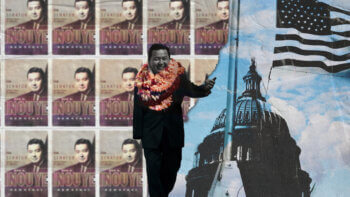
MK: What challenges do you believe disabled writers face, and how can the industry address these barriers to enhance representation?
DalM: That’s a tough one, and there are a lot of really tough barriers. I think the biggest thing with disability is tied to those same tropes that led us to create the series, right? Those beliefs about disability impact how people perceive capacity.
This idea is that if you have a disability, you’re not going to be quite as good. It’s like me walking in and saying, “I’m a director, but I’m also blind.” Most people are going to think, ”I’ve never seen that. I don’t know how you could do that, so you must not be very good at it.”
It’s that lack of understanding and questioning of capacity. Instead of asking, Tell me how you would do it,’ there’s an assumption that the person doesn’t know what they’re talking about, which leads to them not getting hired.
One of the things we aimed to do in the series was to show disability as a point of strength. Just like when telling stories in communities of colour, having somebody of colour with an understanding of the nuance of storytelling provides an advantage.
Part of this series was about highlighting that strength. Another part was the structure we set up with Renegades and PBS, where they built their VIA Incubator for disabled filmmakers. It was connected to the series as a way to benefit PBS, giving them more series that are accessible and represent a wider community.
It also created a pipeline for disabled filmmakers, offering them a chance to showcase their abilities. For example, every episode wasn’t just about me, even though I may have created the series. We had 30-plus writers, directors, and producers, all with disabilities. Each episode was made by teams that were about 90% of people with disabilities.
This gave them something to put on their resumes, to showcase their work, and to return to public television later with the credibility to pitch a feature, saying, “Here’s what I’ve done before.”
It’s a great model for the industry to see that giving folks a chance lets them show what they’re capable of. You should trust people with disabilities to tell stories in a way that isn’t just meaningful but downright amazing. I think the Renegades series is a proof of concept to showcase these incredibly talented people.
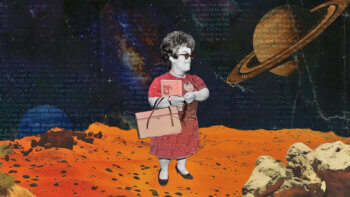
MK: How does Renegades align with ANOKHI Life’s mission to amplify beautiful voices, particularly in the context of disability representation? Additionally, what do you find most rewarding about sharing untold stories, and how do you hope they will inspire future storytellers?
DalM: I think it sounds like we’re very much aligned, right? It’s about lifting stories, not because they’re less worthy, but because people just don’t see them. There’s a lack of visibility. As you say, as a writer, some of those obstacles exist.
So, if we can showcase these stories even a little, all these folks need is to be seen. Hopefully, more opportunities will come to them as a result. I think that’s the goal here; to simply show what’s already there. That’s what we’re doing.
It’s one of those things that lies at the heart of true storytelling and better storytelling. When you get those opportunities, the more you share them, the better it is for everyone.
MK: What inspired the creation of Renegades, and how does the series aim to highlight the lives and contributions of historical figures with disabilities?
DalM: So the inspiration came from the fact that we just weren’t seeing ourselves in history and wanting to have a chance to change that. Our goal was, first and foremost, and it’s great that we can do this through PBS to reach their audience and also expand by putting it on YouTube.
We want to showcase these stories not as something special, specific, or separate, like “there are these disabled people over there,” but as a vibrant and dynamic part of American culture. For example, when we talk about Judy-Lynn del Rey, it’s not just about her as a woman or as a woman with dwarfism; we’re talking about her impact on the science fiction industry she loved.
Similarly, Celestine Tate Harrington, her story can’t be told without talking about her family, Philadelphia, and Atlantic City. And with Thomas Wiggins, his story is intertwined with slavery and the history of that time.
We’re presenting these stories as part of the broader American landscape, just like any story should be told within a larger context so that it means something to everyone. That’s the most important part, making sure everyone feels a connection to these stories.
The other thing we’re doing, through PBS Learning Media, is ensuring that these stories aren’t just told once and forgotten. They’re being integrated into curriculum materials so that the videos can be used in ninth through 12th-grade classrooms.
This initiative helps educators provide students with a deeper understanding, not just of disability, but of the historical changes brought about by these individuals and communities. It’s about giving kids, or rather teens in grades nine through 12, a chance to better understand this history.
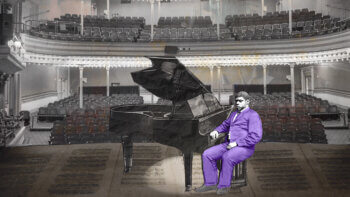
MK: Lastly, could you share your personal experience from Renegades that deeply resonated with you and reflects your vision for the series?
DalM: One of the things we did was host a pre-screening of all five films at the Kennedy Center. It was a sold-out screening, which I honestly didn’t quite expect.
It’s one thing to see these films individually, as they were built for digital viewing, so anyone can watch them on their own. But experiencing them in a theatre with a full audience was completely different.
Probably the most impactful moment for me was sitting in that audience. Amanda, our series producer, shared how the woman sitting next to her was crying, and so many others responded similarly, very emotionally. Watching all the films back-to-back brought this profound recognition of seeing yourself on screen.
For me, that moment in the theatre was incredibly significant. I can make a film and tell a story, but it means nothing if it doesn’t connect with someone. That’s the essence of all media, it’s about creating a connection between people through emotional storytelling. And in that moment, seeing how deeply the audience connected with these films, meant everything to me.
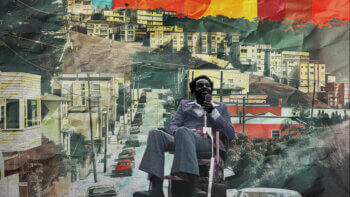
In conclusion, Renegades is more than just a series, it’s a testament to the vibrant and dynamic contributions of individuals with disabilities throughout history. By challenging stereotypes and showcasing untold stories, this series not only bridges the gap between history and the present but also fosters a greater understanding of disability as a source of strength and innovation.
Explore the Renegades AD Accessible Trailer, designed to ensure an inclusive storytelling experience that resonates with everyone. Discover the Renegades ASL Accessible Trailer, crafted to bring these powerful stories to life for the deaf and hard-of-hearing community.
Mehak Kapoor | Features Editor - Entertainment
Author
Mehak Kapoor (@makeba_93) is an entertainment and lifestyle journalist with over a decade of experience in anchoring and content creation for TV and digital platforms. Passionate about storytelling and factual reporting, she enjoys engaging with diverse audiences. Outside of work, she finds solace i...


































































































